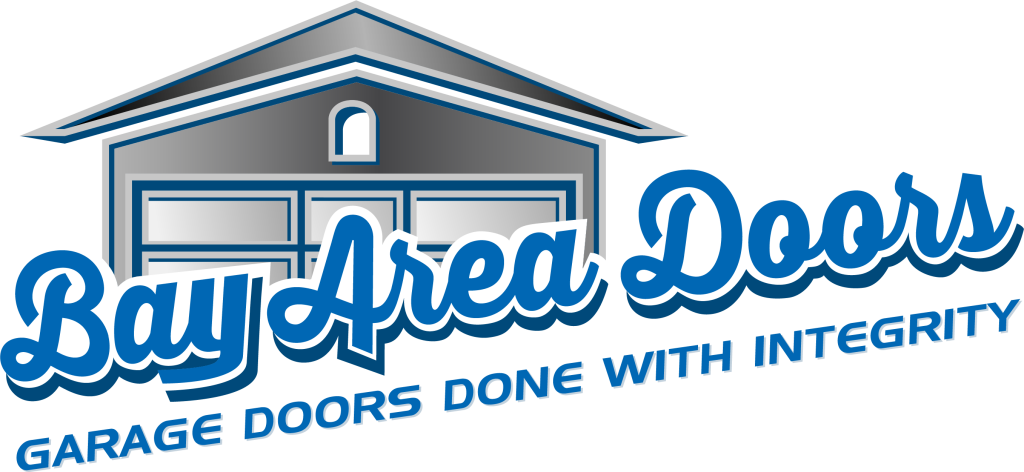One often overlooked aspect is checking the spring tension regularly for garage door repairs. This simple task can prevent accidents and costly repairs down the line. Faulty spring tension in the garage can lead to sudden door malfunctions, posing potential dangers to you and your family. By understanding the importance of maintaining proper spring tension, you can enhance the safety and longevity of your garage door system. Stay ahead of potential issues by incorporating this quick check into your regular home maintenance routine.

Understanding Spring Hazards
Hazards
Garage door springs pose significant hazards due to their high tension levels. Mishandling or improper maintenance can lead to severe injuries.
Improper installation or adjustment of garage door springs can result in sudden snapping, causing serious harm. The force from a broken spring can be powerful and dangerous.
Precautions
To ensure safety, it is crucial to take necessary precautions when dealing with garage door springs. Regular inspections by professionals can help identify potential issues early.
When attempting DIY repairs or maintenance on garage door springs, always follow manufacturer guidelines and use appropriate tools. Avoid trying to adjust or replace springs without proper knowledge and experience.
Why Springs Pose Risks
Potential Dangers
Garage door springs play a critical role in the smooth operation of the door, but they also pose significant risks. When not properly maintained, these springs can become a safety hazard.
Improperly adjusted or old springs are prone to sudden failure, leading to the garage door falling unexpectedly. This can result in serious injuries to anyone in its path. The force exerted by a falling garage door is substantial and can cause harm beyond imagination.
Risks Associated
The main risk stems from the high tension that garage door springs operate under. This tension is necessary for lifting the heavy doors but also makes them potential hazards. If the springs are worn out or damaged, this tension can be released suddenly, causing the door to slam shut with immense force.
The unpredictable nature of spring failures makes them even more dangerous. A sudden snap or breakage of the spring can catch anyone nearby off guard, potentially causing severe injuries or property damage.
Impact Of Sudden Spring Failure
When a garage door spring fails unexpectedly, it can lead to catastrophic consequences. Apart from physical injuries such as bruises, cuts, or broken bones, there is also a risk of significant property damage. The sudden release of tension can send the door crashing down with tremendous force.
Moreover, if someone is standing beneath the door when it falls due to spring failure, the outcome could be fatal. The weight and speed at which a garage door closes during such incidents are enough to cause life-threatening injuries.
Common Spring Failure Causes
Fatigue Impact
Garage door springs are under constant pressure from frequent opening and closing, leading to fatigue. This gradual wear weakens the spring over time, eventually causing it to fail.
The repetitive strain on the spring due to daily usage causes metal fatigue, reducing its ability to support the garage door’s weight. As a result, the spring becomes more prone to sudden failure.
Rust And Corrosion
Rust and corrosion play a significant role in weakening garage door springs. When exposed to moisture and other environmental factors, springs can start developing rust, compromising their structural integrity.
Over time, the accumulation of rust weakens the spring material, making it susceptible to breakage. Regular maintenance and applying lubricants can help prevent rust formation and extend the lifespan of the springs.
Identifying Faulty Springs
Signs
Inspect your garage door springs regularly for any signs of wear or damage. Look for gaps, rust, or visible damage that may indicate spring issues.
Importance
Regular maintenance is crucial to ensure the safety and functionality of your garage door. Failing to address spring problems promptly can lead to sudden failure, risking accidents.
Consequences
Ignoring spring issues can result in serious injuries or property damage. A broken spring can cause the door to fall unexpectedly, posing a significant hazard.
Types Of Garage Door Springs
Torsion Springs
Torsion springs are typically mounted above the garage door and wind up to store mechanical energy. These springs work by twisting or torsion, providing balance and support for the heavy garage door. When the door is closed, the torsion springs unwind to lift the door.
Torsion springs have a longer lifespan compared to extension springs, lasting around 10,000 cycles. They are considered safer as they are located parallel to the door, reducing the risk of accidents. However, if they break, they can be more challenging to replace due to their location.
Extension Springs
Extension springs are installed on either side of the garage door and stretch to provide lifting force. These springs extend and contract as the door moves up and down, assisting in opening and closing the garage door smoothly.
Extension springs have a shorter lifespan of about 5,000 cycles but are easier to replace than torsion springs. They are more affordable but can be hazardous if they snap during operation, potentially causing property damage or injuries.
Operating Mechanism
Torsion springs operate by winding and unwinding along a shaft above the garage door when it opens or closes. The stored energy in these tightly wound springs helps in lifting the heavy door effortlessly, ensuring smooth operation.
On the other hand, extension springs stretch and contract as the garage door moves, providing counterbalancing force. These springs work by extending when the door is lifted and contracting when it is lowered, aiding in maintaining proper tension for safe operation.
Unique Characteristics
Torsion springs offer better balance and stability for garage doors due to their design that disperses weight evenly. They provide controlled movement with less vibration, enhancing overall safety during operation.
In contrast, extension springs can cause jerky movements in garage doors due to their stretching action. This can lead to a less smooth opening and closing process, potentially impacting the longevity of other components like hinges and rollers.
Checking Spring Tension Safely
Proper Tools
To check spring tension accurately, you will need a winding bar and vice grips for safety.
Always keep in mind that garage door springs are under extreme tension and can be dangerous.
Inspection Techniques
Start by disconnecting the opener to ensure the door is in manual mode before testing the spring tension.
Use a winding bar to unwind the spring slightly, releasing some of the tension for inspection.
Safety Measures
When testing the tension, always stand to the side of the spring, never directly in front of it.
Ensure that your tools are securely in place and that you have a firm grip on them while inspecting the springs.
Importance Of Regular Checks
Regularly checking your garage door’s spring tension is crucial for maintaining its functionality and safety.
Preventing Spring Damage
Regular Inspection
Regular inspection of your garage door springs is crucial to catch any signs of wear and tear early. Look for cracks, gaps, or rust that could indicate potential spring failure.
It’s recommended to visually inspect the springs at least once a month. Check for any misalignment or unusual sounds during operation, which might indicate an issue with the spring balance.
Professional Maintenance
Seek professional maintenance services annually to ensure your garage door springs are in optimal condition. Professionals can detect early signs of damage and perform necessary repairs promptly.
Professional maintenance not only extends the lifespan of your springs but also prevents costly repairs down the line. They can adjust the spring tension and lubricate moving parts effectively.
Importance Of Lubrication
Regular lubrication is key to maintaining the functionality and longevity of your garage door springs. Use a high-quality silicone-based lubricant on all moving parts, including hinges, rollers, and springs.
Proper lubrication reduces friction between components, preventing premature wear and tear on the springs. It also ensures smooth operation and minimizes the risk of accidents due to faulty spring mechanisms.
Balancing Mechanism
A well-balanced garage door puts less strain on the springs, prolonging their lifespan. Test the balance by disconnecting the opener and manually operating the door halfway.
If the door stays in place when left halfway open, it means the balance is correct. If it moves up or down, it indicates an imbalance that needs adjustment by a professional technician.

Regular Inspection Importance
Preventive Measures
Regular inspections of your garage door springs are crucial to ensuring the safety of your property. With an average lifespan of about 10,000 cycles, even a small amount of wear and tear can lead to spring failure.
By conducting routine inspections, you can identify any signs of damage or weakening springs early on. This proactive approach allows you to address issues promptly before they escalate, preventing potential accidents and injuries.
Safety Precautions
One significant benefit of regular inspections is the enhanced safety they provide. By checking the spring tension periodically, you can detect any abnormalities and take necessary action to prevent sudden spring failures.
A well-maintained garage door with properly adjusted springs reduces the risk of unexpected malfunctions that could result in property damage or personal injury. Prioritizing regular inspections ensures that your garage door operates smoothly and safely at all times.
Long-Term Savings
Investing time in regular garage door inspections may seem like a minor task, but it can save you from costly repairs or replacements down the road. By catching issues early through routine maintenance, you avoid more extensive damages that could require expensive fixes.
Moreover, addressing spring tension concerns promptly helps prolong the lifespan of your garage door system. This proactive approach not only safeguards your property and loved ones but also contributes to long-term savings by extending the longevity of your garage door components.
Handling Emergencies
Responding Quickly
Accidents involving garage door springs can lead to serious injuries, so knowing how to respond is crucial. If a spring breaks, avoid opening or closing the door and contact technicians immediately.
Being aware of the warning signs of a failing spring can prevent injuries. Look out for any unusual sounds during the operation of the door or if it seems heavier than usual.
Dealing With Spring Failure
In case of a sudden spring failure, stay away from the door and keep pets and children at a safe distance. Attempting to fix it yourself can result in further problems, so leave the job to trained professionals.
When a spring breaks, it releases stored energy that can cause severe harm. Avoid touching any part of the system and ensure everyone stays clear until technicians arrive.
Safety Protocols
Understanding how many cycles your garage door spring is rated for is essential. Most springs are designed for a specific number of cycles before they wear out and may break.
Power off the automatic opener when dealing with a broken spring to prevent accidental activation. This simple step can avoid additional accidents while waiting for professional help.
Closing Thoughts
Ensuring your garage door’s safety is crucial. By understanding spring hazards and the risks they pose, you can identify faulty springs early on. Regular inspections and safe tension checks are key to preventing emergencies. Remember, a well-maintained garage door keeps your family and property secure. Take action now to check your spring tension and address any issues promptly. Your safety is in your hands.
Looking For Garage Door Spring Tension Experts? Your Search Ends Here!
Experiencing issues with your garage door spring tension? Or is your garage door refusing to budge? We get the hassle! At Bay Area Doors, we’ve been the trusted garage door spring tension experts for over two decades. We’ve got you covered whether it’s installation, repair, roller fixes, opener issues, or track replacements. Our expertise has served thousands of SF Bay Area homeowners, garnering rave reviews across Google, Yelp, Nextdoor, and beyond. With Bay Area Doors on speed dial, all your garage door woes are just a call away from being resolved. Ready to experience top-tier service? Reach out to us now!

